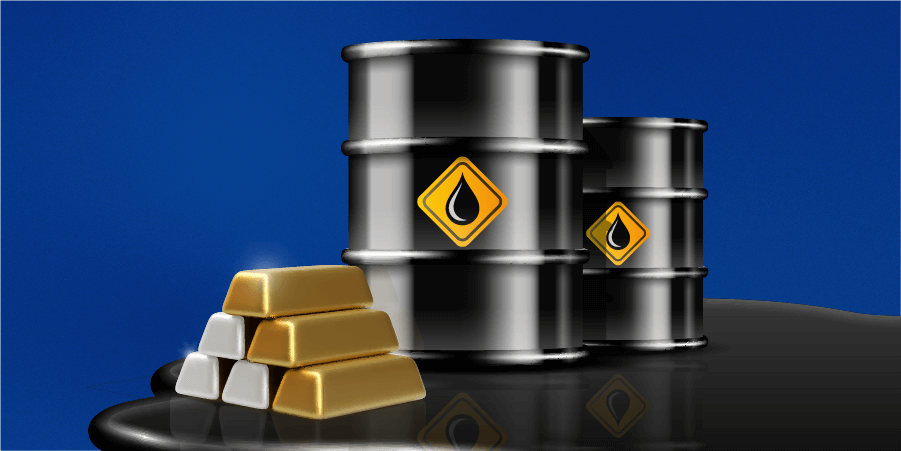Trade popular commodities like gold, silver, oil, and more, backed by our superior trading infrastructure. Enjoy instant executions and high liquidity, all while benefiting from our secure and segregated accounts.
Gold, a timeless asset, remains a preferred choice for investors seeking stability in uncertain times. Trade gold with confidence at ZitaPlus, supported by our advanced platforms and real-time insights.
Crude oil, a key global commodity, reflects the global supply, demand dynamics, and geopolitical factors. ZitaPlus provides the tools you need to leverage these dynamics for your trading advantage.
From coffee to cotton, soft commodities are integral to global trade. Discover a trading experience like no other in these markets, with the precision and reliability that traders need.
Your commodity trading journey is designed for success at ZitaPlus. With our competitive spreads and advanced analytics, you can confidently manage market shifts and increase your profits.

Commodities are raw materials or primary agricultural products that can be bought and sold. They are typically divided into two categories: hard commodities, such as metals and energy products (like oil and gold), and soft commodities, which include agricultural products (like coffee and cotton).
Trading commodities allows investors to diversify their portfolios, hedge against inflation, and potentially profit from market fluctuations. With ZitaPlus, you can access a wide range of commodities with low spreads and high leverage, providing opportunities for strategic trading.

Trading commodities offers several notable advantages. One significant benefit is diversification; by including commodities in your investment portfolio, you can spread your risk across different asset classes. This is particularly valuable because commodities often behave differently from traditional investments like stocks and bonds. Additionally, commodities can serve as a hedge against inflation. As prices for raw materials tend to rise with inflation, investing in commodities can help preserve purchasing power. Moreover, the global nature of commodity markets means there are ample opportunities to take advantage of international economic trends and market fluctuations. High liquidity in many commodity markets also ensures that trades can be executed quickly and efficiently.

Commodities can be broadly categorized into several types, each offering different trading opportunities. Precious metals, such as gold, silver, platinum, and palladium, are popular choices due to their role as safe-haven assets during economic uncertainty or inflationary periods.
Energy commodities, including crude oil and natural gas, are influenced by global economic conditions and supply-demand dynamics. Industrial metals like copper and aluminum are crucial for manufacturing and construction, reflecting their importance in economic development. Soft commodities, such as coffee, cocoa, sugar, and cotton, are essential agricultural products that can be affected by factors like weather conditions and seasonal demand. Each type of commodity presents unique opportunities and challenges for traders.

Commodity prices are determined by various factors that can lead to significant fluctuations. One of the primary determinants is supply and demand dynamics. For instance, if there is a surplus of a commodity like oil, prices may fall, while a shortage can drive prices up.
Geopolitical events, such as conflicts or trade disputes, can also impact commodity prices by affecting supply chains or creating market uncertainty. Economic indicators like GDP growth rates or inflation data, play a role in influencing commodity demand and pricing. Weather conditions can also have a profound effect, particularly on agricultural commodities, where droughts or floods can alter production levels and prices. Market sentiment and speculative activities, driven by traders' expectations and forecasts, further contribute to price volatility.

Effective risk management is a part of successful commodity trading.
Explore the advantages ZitaPlus offers for a secure and smooth trading experience.

Commodity trading involves buying and selling physical goods or contracts representing these goods, whereas stock trading involves buying shares of companies, and forex trading deals with currency pairs. Commodities are influenced by different factors, such as supply and demand dynamics, geopolitical events, and weather conditions, which can lead to unique market movements.
Stock prices, on the other hand, are often influenced by company performance and broader market trends, while forex rates are affected by interest rates, economic indicators, and geopolitical factors. Each market has its own set of dynamics and risks, making commodity trading a distinct experience from stocks and forex.